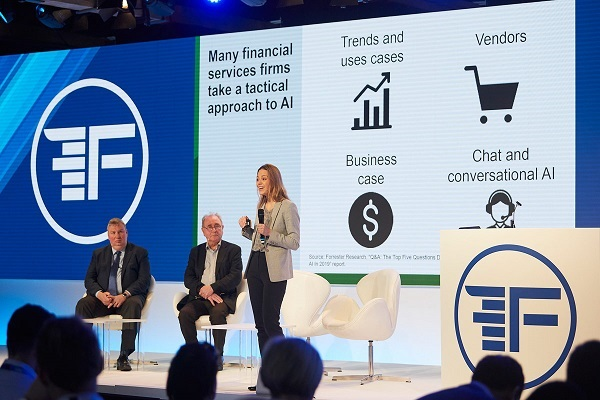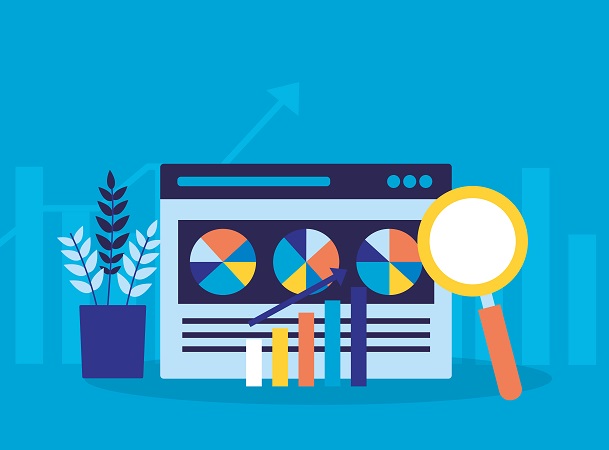Since its launch as the core technology of Bitcoin, blockchain stirred the minds of developers, marketers, and technicians. Other virtual currencies followed its pattern and as a result the total market value of virtual money exceeded 100 billion this summer. Company owners, governments, and specialized institutions are currently facing an alternative financial system which continuously develops and extends.
The business world is trying to make the most of it. New possibilities of using blockchain innovation have been tested and implemented, while others are still being researched. The blockchain revolutionizes the way information can be stored, secured and accessed. And it is on its way to bringing huge changes to the financial system and the business world. The efficiency, security, and versatility of blockchain technology will optimize the work of entrepreneurs, managers, and marketers worldwide. With that in mind, here are just three of the ways businesses will integrate blockchain science:
Financing Companies the Tech-savvy Way
It is now possible to finance a start-up through Initial Coin Offerings (ICOs), an innovative system of investment which allows emerging companies to obtain funding by selling tokens. Tokens work like shares of a business, but without the exchange of equity, and they can be put on cryptocurrency exchange markets. Their value depends on the target fund and of course, the number of tokens the initiator wants to sell. Once they are on the market, their value revolves around their demand and later on it will be influenced by the evolution of the startup project, the investors’ reactions and other factors that also work in the traditional trading markets.
This is sort of a complex crowdfunding mechanism, where instead of rewarding small donations with a gift, start-up founders give tokens that grow in value over time.
The financing period of a project is limited and generally seeks to reach a certain sum at the end. The tokens become available through Initial Coin Offerings (ICOs) and can be acquired by potential investors with most major cryptocurrencies. Up to 10% percent of crypto coins are saved for the team working on the start-up, as a means to support their efforts through the development phase.
A number of platforms around the world provide the needed mechanism to organize an ICO, but also to support the transactions that will follow. The Transform Group and the Vanbex Group are among the most prestigious, but Tokenmarket and Otonomos are newcomers that offer competitive services. A trading solution must also be included in the plan and the most trustworthy so far is Ethereum, which features the option of smart contracts and uses a blockchain set-up to handle cryptocoins. The costs are small when you operate on Ethereum, but entrepreneurs will need a consistent budget for promoting the ICO, which will hopefully create enough buzz to make the value of the tokens rise on the market and finally pay off the marketing investment.
Big Data and Blockchain: The Magic Combo
At first, blockchain was a game-changer for the financial industry. It was the core technology of Bitcoin and other virtual currencies emerged by adopting its functionalities. Then, it caught the attention of Central Banks around the world, which started to invest in research. Gradually, other industries incorporated blockchain technology in their practice because it is an easy-accessible, low-cost and safe way to store information. Entrepreneurs rushed to develop services based on this new technology, realizing its advantages. There are voting and poll systems using blockchain, decentralized data storage services, merchandise tracking mechanisms and art distribution platforms, all based on blockchain science. So Big Data specialists will have at their disposal larger and larger amounts of accurate information to analyze in the coming years.
Though initially developed to enhance confidentiality and security of transactions, blockchain technology improves the accuracy of Big Data. Blockchain systems don’t validate suspicious entries. With every transaction registered chronologically in a public ledger, consumer patterns are easy to detect. Moreover, every new entry updates the entire database, which provides an opportunity for real-time analytics to be performed. Detecting changes in spending patterns can significantly improve the work of strategic departments in a company and reduce costs.
Adopting the Technology of the Future by Creating Blockchain Apps
A skilled business owner must know when to spare some money for a durable product. There is no use of investing in yesterday’s technology when it comes to developing personalized apps for a company – if you do that, you’re simply following the herd, instead of offering something actually fresh and valuable. Business owners need to understand how to find app developers that will deliver that, instead of just going for the easy route of hiring some local team.
Since the main features of blockchain systems are safety, flexibility, accessibility, accuracy, and cost-effectiveness, apps based on this technology can improve many departments in a company.
First of all, enhancing the internal infrastructure with blockchain technology will help develop transparent processes that will rise the level of trust among associates and clients. For recording purposes, a private blockchain network is a smart option. This will grant a smooth-running system for employees, partners, and customers alike. Developing a personal app for supply-chain optimization lets managers work with real-time reports, which gives them a chance of minimizing the effect of any problem or mistake that might interfere in the production process.
“The first generation of the digital revolution brought us the Internet of information. The second generation — powered by blockchain technology — is bringing us the Internet of value: a new platform to reshape the world of business and transform the old order of human affairs for the better.” (Don Tapscott, co-founder of Blockchain Research Institute)
There can be no doubt that the blockchain is currently rocking the finance system because it is the next revolutionary dream after the Internet era. It minimizes the impacts of governments and institutions and gives the power back to the people, letting them decide where to put their trust. Besides technicalities, what blockchain technology does is to prioritize transparency when implemented in any system or process. And as it slowly seizes field after field, entrepreneurs will have to adapt to the new age if they hope to thrive and survive.





















![7 data-driven ways to optimize your online store for mobile [Infographic]](https://crayondata.ai/wp-content/uploads/2019/11/optimize-1.jpg)


![Top tips and tricks to improving your customer experience [Infographic]](https://crayondata.ai/wp-content/uploads/2019/01/customer-journey-1.jpg)